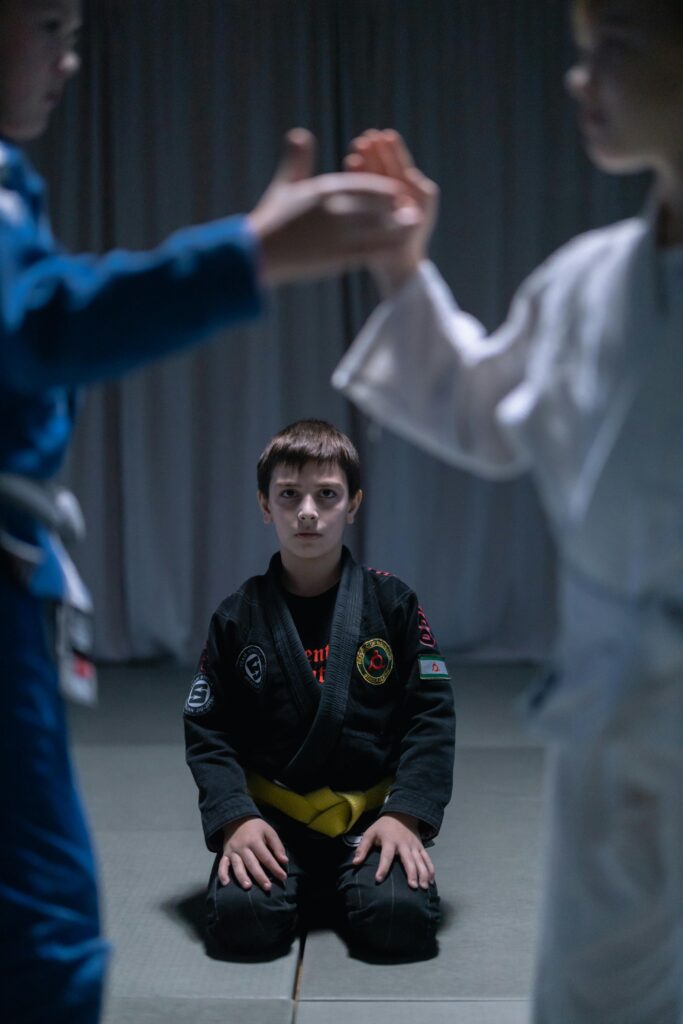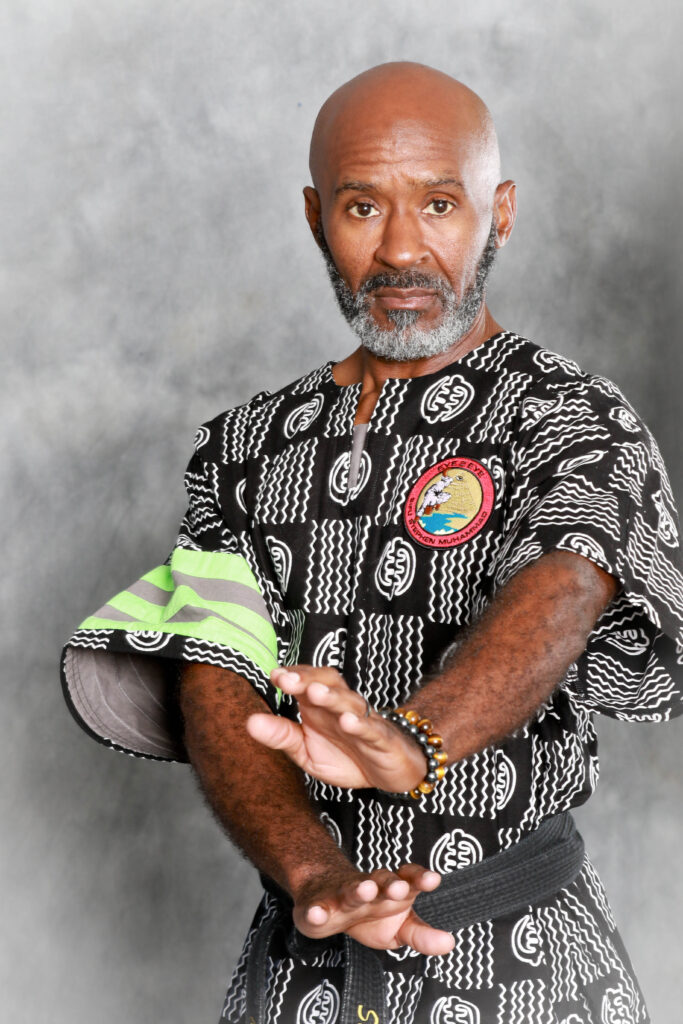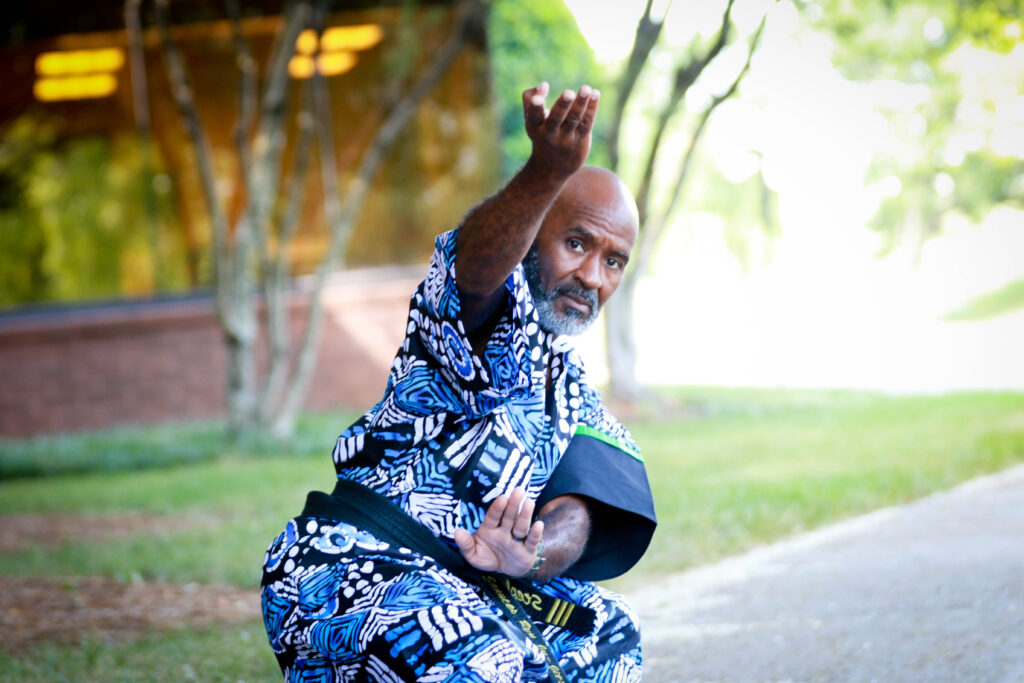If you’re deciding between Taekwondo vs Jiu Jitsu, you’re likely wondering which martial art is going to be a better fit for your goals. Maybe you want to improve your fitness, or maybe you’re more focused on self-defense.
Whatever your reasons, both of these martial arts offer something unique. Taekwondo focuses on fast, powerful kicks while Jiu Jitsu is all about grappling and ground control.
As someone who’s seen students thrive in both styles, I’ll walk you through the differences, and by the end, you’ll have a clearer picture of which one might be the right choice for you.
Understanding the Basics of Taekwondo and Jiu Jitsu
Before we dive deeper, let’s get a clear picture of what each martial art is all about.
What is Taekwondo?
Let’s start with Taekwondo. This Korean martial art is known for its high, fast kicks and fluid combinations.
If you’ve ever watched Olympic martial arts events, you’ve probably seen Taekwondo in action. It’s all about speed, precision, and using your legs as your main weapon.
When you’re practicing Taekwondo, you’ll spend a lot of time on footwork and striking, learning how to deliver powerful kicks while maintaining balance and control.
What I love about Taekwondo is that it teaches you to use your entire body in a very coordinated way. You’ll develop flexibility and strength, especially in your legs.
But it’s not just physical—Taekwondo also emphasizes mental discipline. You have to stay focused, quick, and strategic. And honestly, it’s a lot of fun if you enjoy fast-paced, high-energy training.
What is Jiu Jitsu?
Jiu Jitsu, particularly Brazilian Jiu Jitsu (BJJ), is a totally different style. While Taekwondo keeps you on your feet, Jiu Jitsu teaches you to dominate on the ground.
It’s a grappling art, where the goal is to control your opponent through joint locks, chokes, and holds. This style is all about using leverage and technique, so it doesn’t matter if you’re big or small—anyone can be successful in Jiu Jitsu.
One of the things that makes Jiu Jitsu so appealing is its practicality. In a self-defense situation, you might end up on the ground, and Jiu Jitsu prepares you for that.
It’s a great way to learn how to defend yourself, even if you’re not the strongest person in the room. I’ve seen countless students—big, small, young, and old—find confidence through learning how to control an opponent, regardless of size or strength.
Key Differences in Techniques
Now that you know the basics, let’s break down how these two styles differ in their core techniques.
Taekwondo’s Striking Techniques
Taekwondo is, at its core, a striking art. The kicks are fast, high, and powerful. You’ll learn how to generate force from your hips and use that energy to deliver devastating blows to your opponent.
In training, you’ll work on different types of kicks—front kicks, side kicks, roundhouse kicks—and eventually, you’ll be combining these into smooth combinations.
One thing to keep in mind is that Taekwondo teaches you to stay at a distance from your opponent. It’s not about getting in close—it’s about controlling the space and using your legs to keep your opponent at bay.
This makes Taekwondo very dynamic and exciting, especially if you enjoy fast footwork and striking from a distance.
Jiu Jitsu’s Grappling and Submission Techniques
Jiu Jitsu takes a completely different approach. Rather than relying on kicks and punches, you’re focusing on grappling—getting your opponent to the ground and controlling them once they’re there.
You’ll learn submissions like arm locks, chokes, and leg locks, which are incredibly effective in neutralizing an attacker.
What makes Jiu Jitsu so interesting is that it doesn’t rely on brute strength. It’s all about technique and positioning. You’re learning how to use your body—and your opponent’s body—in a way that gives you control, no matter how big or strong they are.
This makes Jiu Jitsu a fantastic option if you’re looking for a martial art that levels the playing field.
Which Martial Art is More Effective for Self-Defense?
Both martial arts offer effective self-defense skills, but they approach it in very different ways.
Taekwondo in Self-Defense
Taekwondo’s kicks can be a game-changer in self-defense. A well-placed kick can quickly stop an attacker before they even get close. You’re trained to strike fast and hard, using your legs to keep an opponent at a distance.
The footwork also helps you stay mobile, making it easier to avoid getting trapped or grabbed.
However, it’s worth mentioning that Taekwondo doesn’t focus much on what happens if the fight goes to the ground.
It’s a standing art, so while it’s incredibly effective at keeping attackers at bay, it might not be as useful in close-quarters situations or grappling scenarios.
Jiu Jitsu in Self-Defense
Jiu Jitsu, on the other hand, shines when things get up close and personal. If someone grabs you or takes you to the ground, Jiu Jitsu gives you the tools to escape and control the situation.
You learn how to defend against larger attackers by using their own strength and momentum against them.
In self-defense situations, this is priceless. You don’t need to be the biggest or strongest person to succeed in Jiu Jitsu. You just need to know how to apply the techniques correctly.
I’ve seen students with little to no strength completely overpower bigger opponents simply by using leverage and strategy.
Physical Fitness and Benefits
Aside from learning how to fight, both Taekwondo and Jiu Jitsu offer incredible physical benefits.
Fitness Gains in Taekwondo
If you’re looking for a workout, Taekwondo will not disappoint. The constant kicking, movement, and sparring will leave you sweating in no time.
It’s a fantastic way to build leg strength, improve flexibility, and boost your cardiovascular endurance. Plus, the high-energy pace means you’re always moving, so you’re burning calories throughout the entire class.
Fitness Gains in Jiu Jitsu
Jiu Jitsu offers a different kind of workout. It’s less about cardio and more about strength, endurance, and flexibility.
Grappling requires you to use every part of your body—your core, your arms, your legs—and it’s a fantastic full-body workout. You might not be jumping around as much as in Taekwondo, but the strength and conditioning benefits are huge.
Mental and Philosophical Aspects
Martial arts aren’t just about physical strength—there’s a strong mental side to both of these disciplines.
Mental Discipline in Taekwondo
Taekwondo isn’t just about physical strength. It’s a discipline that teaches respect, perseverance, and mental focus. The philosophy behind Taekwondo is rooted in self-control and discipline.
You’re not just learning how to fight—you’re learning how to be a better, more focused individual.
Mental Discipline in Jiu Jitsu
Jiu Jitsu teaches problem-solving in a very practical way. On the mat, you’re constantly in situations where you need to figure out how to escape, submit, or reverse your opponent.
This requires focus, patience, and creativity. You’ll quickly find that Jiu Jitsu is as much a mental game as it is a physical one, and the lessons you learn on the mat can carry over into everyday life.
Competitive and Cultural Differences
If you’re interested in competition, it’s helpful to understand how each martial art approaches the competitive side of things.
Competing in Taekwondo
If competition is something that excites you, Taekwondo offers plenty of opportunities. Olympic Taekwondo is all about point-scoring through precise, controlled kicks.
The fast pace of competitions makes it exciting for both participants and spectators. It’s a great way to test your skills and push your limits.
Competing in Jiu Jitsu
Jiu Jitsu competitions are more about submission and control. Whether it’s Brazilian Jiu Jitsu or traditional Jiu Jitsu, the focus is on grappling and ground techniques.
The goal is to submit your opponent, and the matches can be slower and more methodical compared to the fast-paced nature of Taekwondo. But don’t let that fool you—Jiu Jitsu competitions are intense and mentally challenging.
Ready to Train Like a Pro? Let Eye2Eye Combat Guide You
Whether you lean toward the powerful kicks of Taekwondo or the grappling expertise of Jiu Jitsu, both martial arts offer unique benefits.
The choice depends on what excites you more: fast, striking movements or strategic, ground-based techniques. Either way, you’ll gain confidence, discipline, and a fantastic workout.
At Eye2Eye Combat, we specialize in helping you find the right path. Whether you’re a complete beginner or looking to refine your skills, our expert instructors provide hands-on training that’s practical and empowering.
Ready to experience the benefits of martial arts for yourself? Join us at Eye2Eye Combat, where every session is a step toward mastering your potential. Let’s get started!
FAQs
What is better, Taekwondo or Jiu Jitsu?
It really depends on what you’re looking for. Taekwondo is great if you enjoy fast, powerful kicks and want to stay on your feet, while Jiu Jitsu is ideal if you’re more interested in grappling and ground control. Neither is “better” than the other—it’s about which style fits your personal goals, whether it’s self-defense, fitness, or competition.
Which martial art can beat Jiu Jitsu?
There’s no martial art that can guarantee a win over Jiu Jitsu—it all depends on the situation and the practitioner. Each martial art has strengths. For example, a skilled Taekwondo fighter might have an advantage standing up, while a Jiu Jitsu expert would dominate on the ground. The real key is the skill, experience, and adaptability of the individual.
Can Karate beat Jiu Jitsu?
In a standing fight, Karate’s strikes can be very effective, but if a Jiu Jitsu practitioner takes the fight to the ground, they have the upper hand. Both martial arts have strengths in different areas, so it’s hard to say one would always beat the other. It comes down to the person using the techniques and their ability to adapt to different situations.
What is stronger, Karate or Taekwondo?
Neither is necessarily stronger—they’re just different. Karate focuses more on hand strikes and close combat, while Taekwondo emphasizes fast, powerful kicks. If you prefer punching and a more grounded stance, Karate might feel stronger for you. If you love dynamic kicks and agility, Taekwondo might be the more powerful option. It really depends on what fits your style.
What martial art is the most effective?
The most effective martial art depends on the context. For self-defense, Brazilian Jiu Jitsu and Krav Maga are often seen as highly effective due to their real-world applicability. Striking arts like Muay Thai or Boxing can also be very practical in a fight. Ultimately, the effectiveness of a martial art comes down to how well you train and apply it.
Is Jiu Jitsu the best fighting style?
Jiu Jitsu is excellent, especially for ground fighting and submissions. But calling it the “best” depends on what you’re comparing it to. It’s great for controlling opponents, but other martial arts like Boxing or Muay Thai might be more effective if you’re looking for striking. Each style has its strengths, and the “best” one depends on your goals and preferences.





